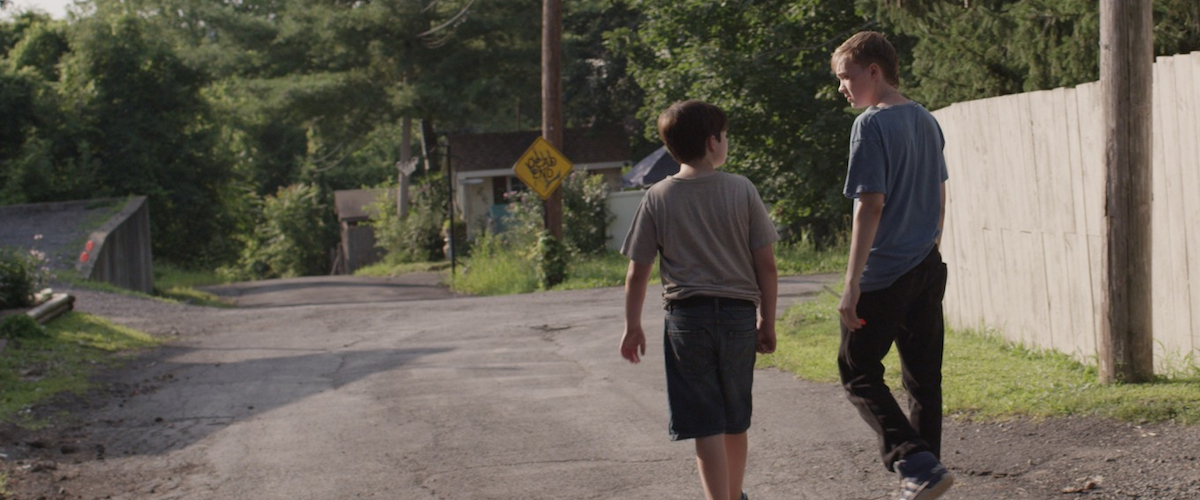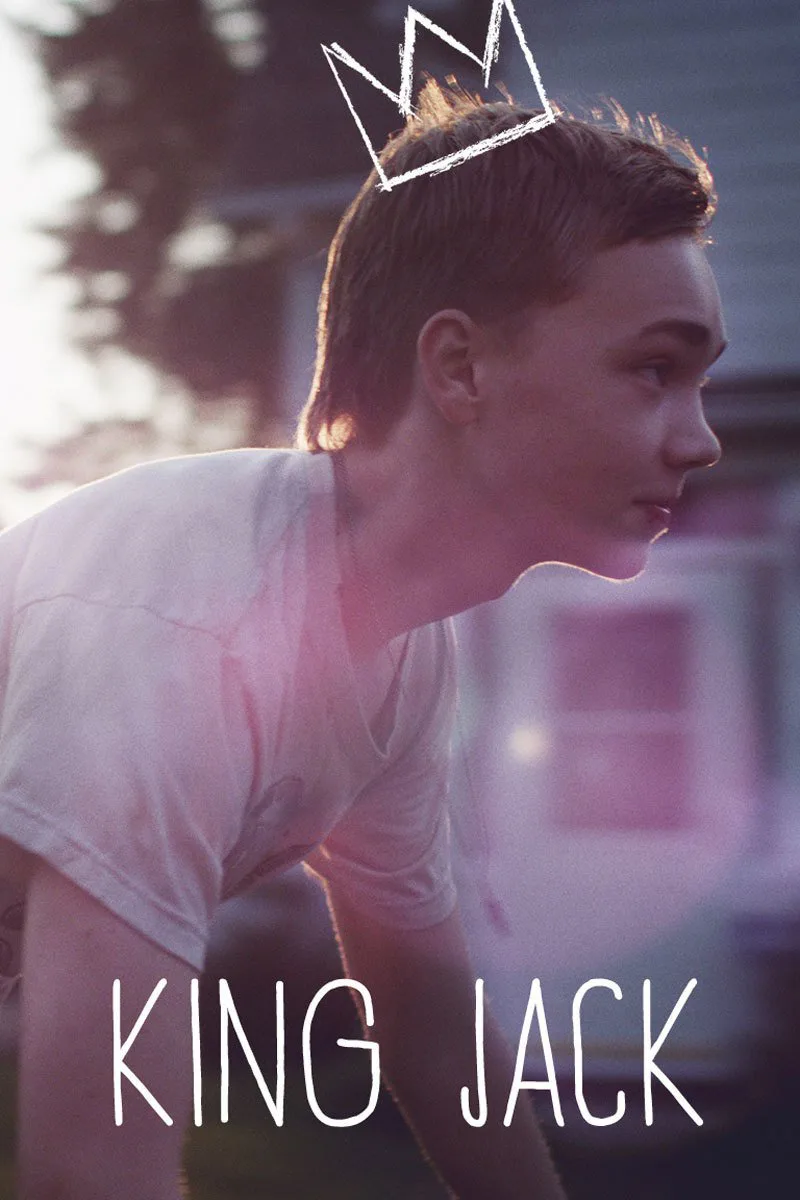Felix Thompson’s “King Jack” recognizes that adolescence is a food chain, but doesn’t do much about it. Its primary focus is on someone in the middle of these power dynamics: Charlie Plummer’s title character, also known now as “Scab.” He’s an outcast of sorts with no friends, living in a working class New York suburb with his mother Karen (Erin Davie) and older, teasing brother Tom (Christian Madsen). In day-to-day life, Jack is trying to endure the ruthless embarrassments of adolescence, while also surviving the bullying of the older Shane (Danny Flaherty) and his posse, who pounce on Jack any time they can. Thompson’s film starts with Plummer spray-painting the word “c**t” on Shane’s family garage, dropping us right into the middle of their ongoing battle. For scant effectiveness, it is revealed a bit later that Shane was once Tommy’s punching bag, making Jack’s torture a type of payback for past trauma. As Shane and Jack clash, leading to a big chase through town, Jack’s 12-year-old cousin Ben (Cory Nichols) becomes a casualty (of sorts) within this cycle of violence.
Thompson’s script tries to relate us to Jack with episodes of machismo and alternating insecurity that define every stone-faced male adolescent; we cringe as he sends a private picture of himself to a girl and a group of them see it and comment upon his manhood. But this narrow, flat narrative perspective only brings out Thompson’s more generic directorial qualities. Innocent passages of Jack acting like a peaceful big brother to the silent Ben playing baseball and then ambling through fields are indie wholesale; a sleepy, atmospheric guitar score and shrugging handheld camerawork reduce the personality this movie might have had. And Plummer’s performance just isn’t strong enough. When Jack shares with Ben how he earned the nickname “Scab” after once being called “King Jack,” Plummer only achieves emotional truth with the raspy tone in which he delivers a weak monologue.
As it is, Thompson tries to win audiences over by mining the extremities of youth: the dreaminess of playing truth or dare when kissing might be on the menu, or the nightmare of impending beatdowns. The movie is recognizable, yes, but it lacks grace. It can only rely on extremes to make a mark, which is why Flaherty’s performance is the standout. He symbolizes our childhood bullies as possible future murderers. Every time he shows up you’re afraid he’s going to kill Jack, a character who has to be at least a couple years younger than Shane, and whose biggest offense is challenging Shane’s power.
It’s unfortunate that “King Jack” wants to be a coming-of-age story about one character when its narrative reveals a more interesting story to be told, in a somewhat wider scope, about Jack, Shane and Tom. Lacking personality or insight, “King Jack” is a ho-hum tale of young aggression—been there, bruised that.




















